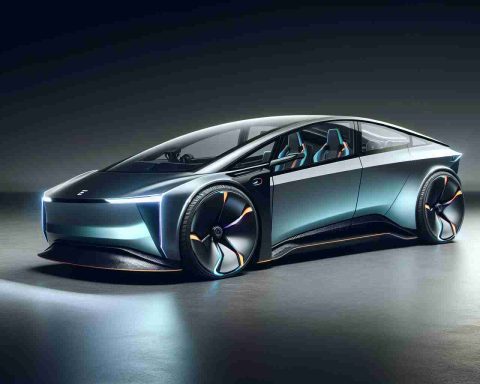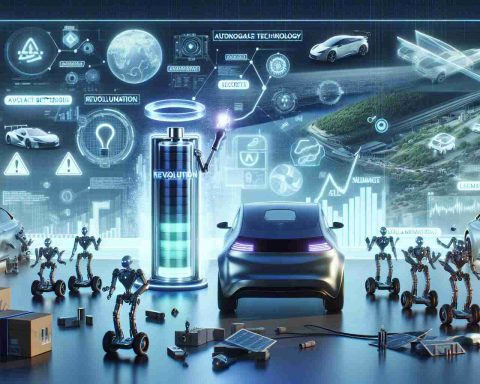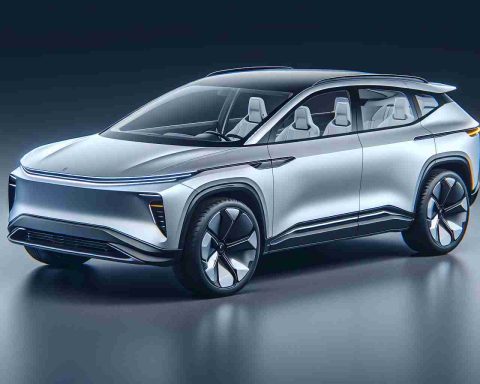Understanding Rivian Automotive’s Stock Performance
Rivian Automotive (RIVN) has grabbed attention as its stock price jumps significantly in today’s trading, reflecting a promising future for the electric vehicle (EV) maker. Early afternoon trading saw shares increase by 3.2%, peaking earlier in the day at an impressive 5.6%.
CEO RJ Scaringe’s Perspective Amid Shifting Policies
CEO RJ Scaringe provided insights into the rising stock value, focusing on how the new political landscape might affect the company. While the potential repeal of Biden-era electric vehicle subsidies may present challenges, he remains optimistic about Rivian’s adaptability. He mentioned that should these incentives be removed, Rivian might alter its vehicle pricing to maintain competitiveness in the market.
What to Expect from Rivian’s Upcoming Financial Results
Anticipation builds as Rivian prepares to announce its fourth-quarter results on February 20. The company achieved impressive production numbers, rolling out 49,476 vehicles and delivering 52,000, indicating resilient operational performance despite fluctuating demand in the EV market. Currently valued at approximately $13.2 billion, Rivian is positioned for potential growth as it navigates these uncertainties.
A Turning Point for the EV Sector
Rivian’s stock surge highlights the fast-evolving electric vehicle market, shaped by changing policies and consumer behavior. As the company adapts its strategies and pricing, it not only influences its own future but also plays a crucial role in the broader transition toward sustainable transportation.
The Broader Implications of Rivian’s Stock Surge
Rivian Automotive’s recent stock performance not only signals a hopeful trajectory for the company but also casts ripples across various sectors of society, culture, and the global economy. As EV manufacturers gain traction, the implications for traditional automobile industries and fossil fuel dependency are profound. A surge in stock prices can lead to increased investor confidence, encouraging further investment in the electric vehicle market—a burgeoning sector aimed at reducing carbon emissions and promoting sustainable transportation.
Culturally, the rise of companies like Rivian champions a shift in consumer values. As environmental consciousness grows, consumers are increasingly prioritizing eco-friendly options. This cultural shift not only impacts what people drive but also shapes urban planning and infrastructure development, demanding more charging stations and supporting renewable energy sources.
From an economic standpoint, Rivian’s adaptability amidst potential policy changes reflects broader trends in the EV market. With the focus on sustainability becoming a global priority, companies that successfully innovate will tap into a rapidly expanding market. Experts anticipate that by 2030, nearly 30% of all vehicles sold globally could be electric, representing over a $7 trillion market opportunity.
Moreover, the future of environmental stewardship hinges on the successes and pitfalls of companies like Rivian. If successful, Rivian’s approach could pave the way for others, indicating long-term significance for reducing greenhouse gas emissions and promoting cleaner cities. As the fight against climate change intensifies, every performance spike in the market for electric vehicles represents a step toward a more sustainable future.
Rivian Automotive’s Future: Market Insights and Predictions
Understanding Rivian Automotive’s Stock Performance
Rivian Automotive (RIVN) continues to be a focal point in the stock market as it showcases significant fluctuations in its share price. The company’s stock experienced a notable surge, particularly with a 3.2% increase during early afternoon trading, and reaching a peak of 5.6% earlier in the day. This performance reflects the growing investor interest in electric vehicle (EV) manufacturers, a market that is expanding rapidly.
CEO RJ Scaringe’s Perspective Amid Shifting Policies
Rivian’s CEO, RJ Scaringe, has shared valuable insights regarding the potential impact of changing political policies on the company’s strategies. The anticipated changes regarding federal electric vehicle subsidies under the Biden administration could pose challenges; however, Scaringe remains hopeful about Rivian’s ability to adapt. He has indicated that if subsidies are retracted, Rivian might adjust its vehicle pricing to remain competitive, demonstrating the company’s flexibility in navigating market dynamics.
What to Expect from Rivian’s Upcoming Financial Results
Rivian is set to release its fourth-quarter financial results on February 20, an event that has generated considerable anticipation among investors and analysts. The company has reported robust production metrics, having produced 49,476 vehicles and delivered 52,000 units, showcasing its operational resilience despite the often volatile demand in the EV market. Currently, Rivian holds a market valuation of approximately $13.2 billion, and as it maneuvers through the challenges of the industry, there is potential for significant growth.
Pros and Cons of Investing in Rivian Automotive
# Pros:
– Innovative Technology: Rivian has positioned itself at the forefront of EV technology, offering unique features in its vehicles.
– Sustainable Vision: The company’s commitment to sustainable transportation aligns it with growing consumer demand for eco-friendly alternatives.
– Strong Production Numbers: Recent production and delivery figures indicate operational efficiency and the ability to meet customer demand.
# Cons:
– Market Volatility: The EV sector remains highly volatile, influenced by market trends and regulatory changes.
– Potential Policy Risks: Changing government incentives could impact Rivian’s pricing strategy and overall competitiveness.
– Dependence on Consumer Trends: Continued success will hinge on consumer acceptance and demand for electric vehicles.
Market Trends and Future Insights
The electric vehicle sector is at a pivotal turning point, driven by innovative technologies and shifts in consumer preferences towards greener alternatives. Rivian’s recent stock performance underscores the fast-evolving nature of this market and the potential for emerging players to disrupt traditional automotive manufacturing.
Educational Resources: FAQs About Rivian Automotive
1. What is Rivian Automotive known for?
Rivian Automotive is an electric vehicle manufacturer known for its innovative vehicles aimed at adventure and utility, such as the R1T pickup truck and R1S SUV.
2. How does Rivian support sustainability?
Rivian supports sustainability by producing electric vehicles designed to reduce carbon emissions and promote eco-friendly transportation.
3. What are the expectations for Rivian’s stock performance in the near future?
Expectations for Rivian’s stock performance are contingent upon various factors including production capacity, market demand, and political policy changes regarding EV subsidies.
Conclusion
As Rivian continues to evolve in the competitive EV landscape, its stock performance reflects broader trends and consumer interests in sustainable transportation. Understanding the implications of policy changes, production capabilities, and market forces will be essential for stakeholders. For more updates and information about the electric vehicle sector, visit Rivian’s official site.


















